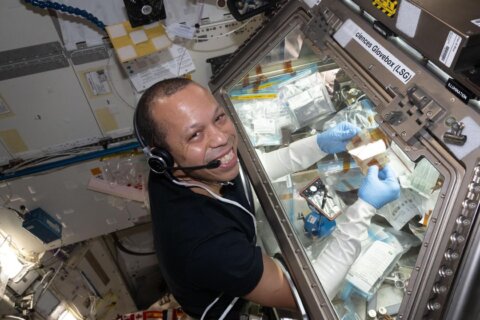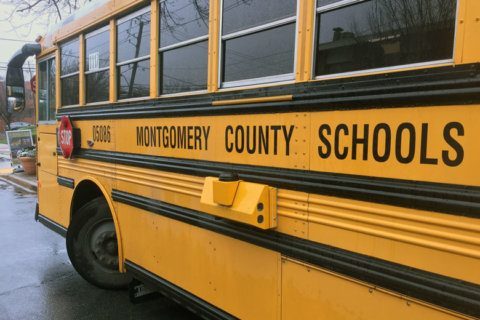Speaking at Thursday night’s town hall on the opioid crisis in Montgomery County, Elena Suarez introduced herself as a “S.O.U.L. Mom.”
She was referring to the organization of mothers and loved ones who have lost someone to opioid addiction.
Suarez lost her 19-year-old daughter to an overdose in 2020.
S.O.U.L. stands for “Surviving Our Ultimate Loss” and, according to participants, is made up of more than 100 mothers in Montgomery County alone who have lost a child to overdose deaths.
Suarez explained that her daughter Colette’s issues were evident to friends who took their concerns to officials at Winston Churchill High School where the teen attended school. Despite changes in her daughter’s behavior, and a meeting with school officials to discuss it, “Tragically — and it was at the beginning of her use — substance abuse never came up,” said Suarez.
Suarez explained that she believed “my daughter would never use drugs,” but said the possibility that her daughter might have a drug problem “also wasn’t on the counselor’s radar.”
Suarez said along with robust prevention and educational programs, Maryland needs to consider allowing involuntary treatment. She explained that while she ultimately lost her daughter to an overdose, “I will never regret what I did” after putting her daughter in rehab programs eight times.
“I can sleep at night,” said Suarez, who recalled that her daughter would often thank her and tell her that she really needed the push toward recovery.
A number of people who are in recovery programs now also lent their voices to the discussion on what the county should do to deal with the spike in opioid overdoses in the county.
A man who introduced himself as Richard explained that he’s “a survivor of fentanyl abuse” and that he’s in treatment now. He referenced the recent eight overdoses at one school in Loudon County in Virginia and asked, “How many more people have to die before we make change?”
He suggested more treatment spaces dedicated to young people.
“I know how hard it was for me to break free of chains of fentanyl, so I can imagine how tough it is for a child to do the same. Please give our youth a chance,” he said as the crowd in the county council meeting room applauded.
Another speaker, who identified herself as Ashley said she is also in recovery.
“I thank God for this opportunity to be in treatment because it’s saving my life and giving my daughter back her mother,” she said.
Like Richard, she urged Montgomery County and Maryland state officials to create more access to treatment for young people. “I was 10 when I started,” she said. “I’m 29 now and, at most, I’ve had a year clean.”
In 2022, 11 people under 21 died of overdoses, according to data from Montgomery County Public Schools. Since then, the school system has allowed students to carry naloxone, commonly Narcan, the overdose reversal drug on campus.
Since July of 2012, Maryland public schools have been required to store and obtain opioid overdose reversal drugs as well as train and authorize designated staff to administer it to students or other individuals on school grounds.
At the conclusion of the meeting, Emily Keller, the state’s special secretary of opioid response, thanked the speakers and said, “For the people who are here, sharing their stories of recovery, congratulations.” And she added that a state advisory council has made recommendations to Gov. Wes Moore “and one of those recommendations was youth treatment services.”
Keller added, “We hear you loud and clear!”
Thursday night’s meeting was hosted by the Maryland Opioid Operational Command Center and the county’s Department of Health and Human Services.








